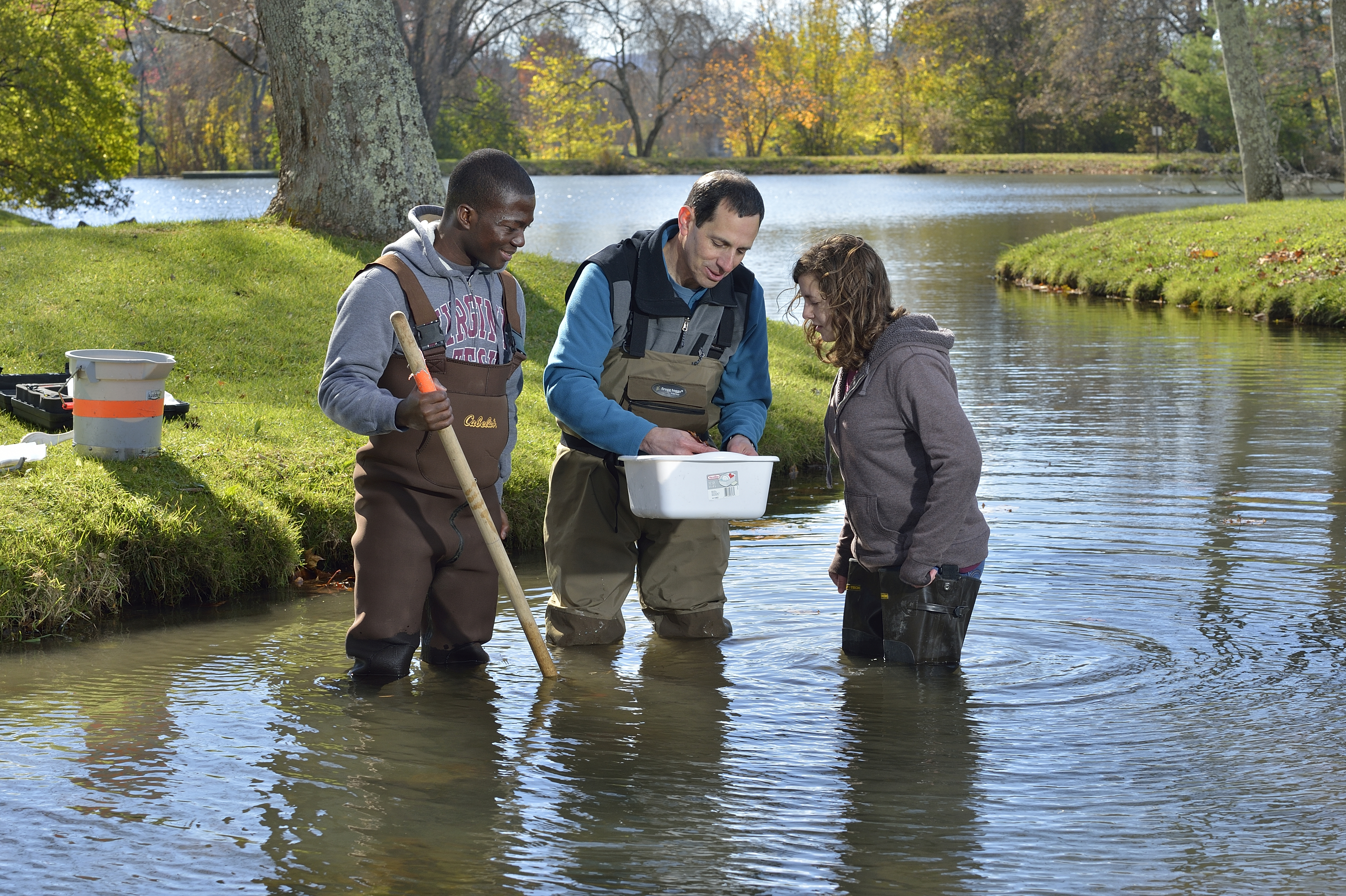New degree in water science, policy, and management to address complex global challenges

Water is the source of mounting pressures throughout the world. The prospect of water disputes increases as supplies become scarcer and more stressed. Some stressors, such as climate change, call for scientific understanding of the water cycle.
In addition, sustainable urban expansion requires an understanding of culture and society. Increasingly, solutions to sharing water require skills involving water science, policy, law, economics, management, and social science.
Virginia Tech is taking an interdisciplinary approach to meet the complex challenges of managing water by proposing a new bachelor of science degree that draws upon the resources of five of its colleges.
The Virginia Tech Board of Visitors approved the new water degree at its June 1-2 meeting; the proposal now goes to the State Council for Higher Education in Virginia for consideration. Virginia Tech expects to initiate the program in spring 2015 pending final approval.
The degree program — called Water: Resources, Policy, and Management — will be unique in the Commonwealth of Virginia. It addresses an expected 19 percent job growth in positions requiring a comprehensive understanding of water issues.
“In order to sustainably manage the resource, understanding the human side of water is as important as understanding the science,” said Stephen Schoenholtz, professor of forest hydrology and soils in the College of Natural Resources and Environment, and director of the Virginia Water Resources Research Center at Virginia Tech.
“People from government agencies, private industry, international aid groups, and more are all saying they want to hire people who understand the science and the human dimensions related to water — policy, communication, and stakeholder issues,” he continued. “There is a strong outlook for jobs to meet the growing needs for managing water.”
“Water is a multidimensional resource,” said Luke Juran, assistant professor of geography and an affiliate of the Virginia Water Resources Research Center. “It exhibits value and affords benefits in areas such as public health, industrial production, agriculture and livelihood, recreation and aesthetics, and, of course, sustaining natural ecologies.”
Juran, who teaches human ecology and water, was one of seven faculty members hired specifically for their expertise related to water. He cites national and international examples of conflicts over water: India takes water Bangladesh needs, America takes water from the Colorado River that Mexico needs.
“Sustainably managing water is a complex challenge,” said Schoenholtz. “Water is a resource for all life. For example, the top management priority for the Jefferson National Forest is now the provision of ample, clean water for our region.”
“The new degree program is about water as a resource from the life science perspective plus economics, policy, law, and management,” he explained.
Schoenholtz, who will coordinate the program with an advisory committee representing faculty from 10 departments, found widespread and strong support throughout the university for creating the undergraduate degree.
“The new degree is exactly the kind of curriculum innovation we need to address global challenges,” said Paul Winistorfer, dean of the College of Natural Resources and Environment. “We’ve brought together the many facets of water expertise on our campus to form what will surely be a leading national educational effort.”
The interdisciplinary degree program will have its academic home in the College of Natural Resources and Environment’s Department of Forest Resources and Environmental Conservation. The colleges of Agriculture and Life Sciences, Architecture and Urban Studies, Engineering, and Science are equal partners, bringing a unique aspect to the degree.
“One of the great values of a comprehensive research university is its ability to draw on faculty expertise from many disciplines to address highly complex issues,” said Rachel Holloway, vice provost for undergraduate academic affairs. “The water degree demonstrates our commitment to translate the knowledge and problem-solving capacity produced in collaborative, interdisciplinary research into the undergraduate experience at Virginia Tech.”
All students in the program will take courses pertaining to water resources and environmental issues, physics, watershed hydrology, environmental science, water quality, and watershed assessment, management, and policy. In addition, they can select courses in water science, policy, law, planning, economics, and geospatial technology.
Dedicated to its motto, Ut Prosim (That I May Serve), Virginia Tech takes a hands-on, engaging approach to education, preparing scholars to be leaders in their fields and communities. As the commonwealth’s most comprehensive university and its leading research institution, Virginia Tech offers 240 undergraduate and graduate degree programs to more than 31,000 students and manages a research portfolio of $513 million. The university fulfills its land-grant mission of transforming knowledge to practice through technological leadership and by fueling economic growth and job creation locally, regionally, and across Virginia.




